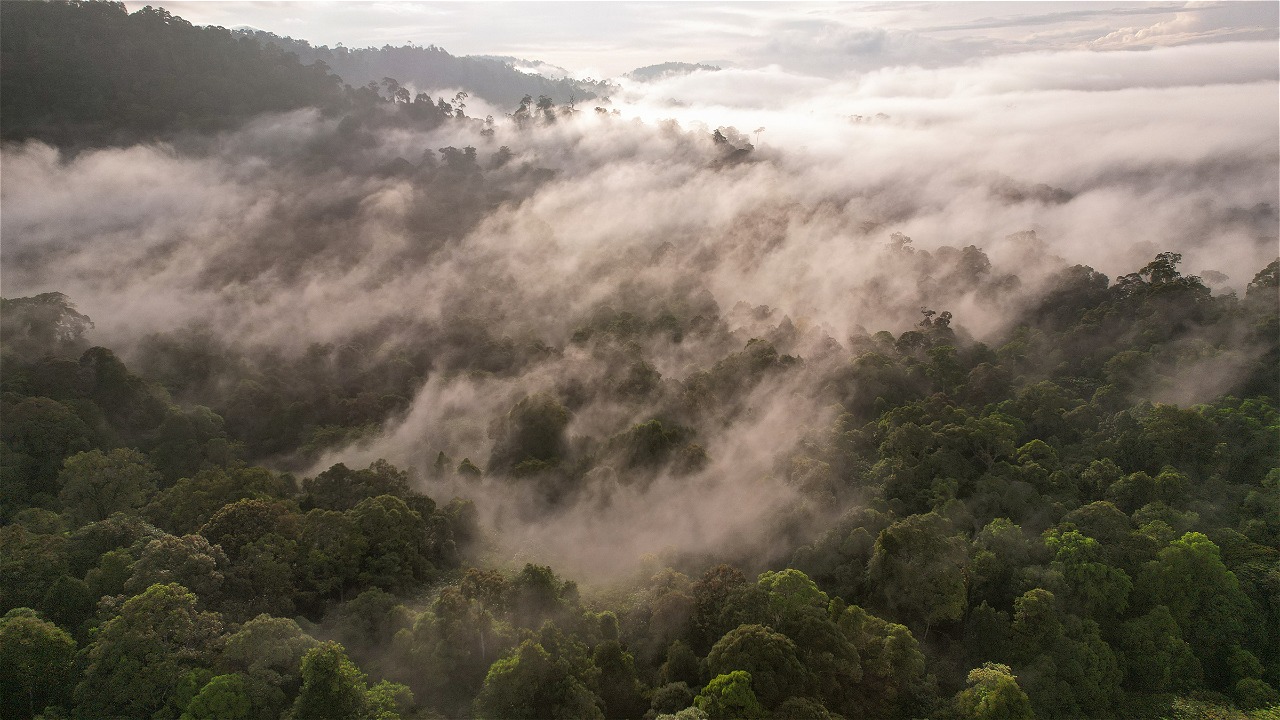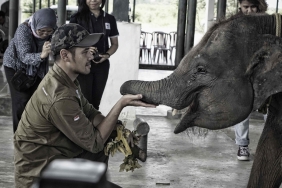RESPONSIBLE FOREST MANAGEMENT - WATER, CARBON AND LANDSCAPE BEAUTY
By: Angga Prathama Putra
Data published by UNEP in 2012 stated that Indonesia's GDP was around $918 billion, the contribution from timber amounted to $14 billion while non-timber forest products reached $13 billion. This condition interprets that the combination of timber and non-timber can have a positive impact on state revenues if management and utilization are integrated. In addition, the paradigm of extractive forests only for timber must be reduced because the impact of ecological footprints is increasingly evident.
Since 2003, WWF Indonesia has been assisting responsible forest management, one of the outputs is to encourage forest managers to get FSC certification - forest stewardship council. Currently, the area of FSC certification in Indonesia reaches 3,000,800 ha, WWF Indonesia has certified production forest areas reaching 921,000 ha. Then, some of them have developed a landscape approach for orangutan habitats and corridors. This shows that the implementation of responsible forest management has a positive impact on the quality of the ecosystem - ecosystem services, including the preservation of biodiversity, the availability of clean water, the maintenance of microclimate, carbon sequestration, and natural beauty.< br />
In 2011, WWF Indonesia together with FSC International supported by the Global Environment Facility (GEF) developed the program FORCES - Forest Certification for Ecosystem Services There are three pilot locations of the ForCES Program in Indonesia, namely Freshwater in Sesaot Forest in West Lombok Regency, West Nusa Tenggara; Biodiversity and forest carbon in PT Ratah Timber in West Kutai Regency, East Kalimantan and Sustainable tourism in Kapuas Hulu Landscape in Kapuas Hulu Regency, West Kalimantan. At these locations, WWF Indonesia provides assistance for responsible forest management with the FSC scheme and develops the concept of environmental services.
Since 2007, WWF Indonesia and stakeholders have been encouraging the application of ecosystem services payments, by involving community participation to maintain and manage the Sesaot forest area, which is a catchment area that is very important for the people in West Lombok, Central Lombok and Mataram City. KMPH Mitra Sesaot manages an area of 185 ha (IUPHKm no. 2130/65/Dishut/2009, November 26, 2012) with 1224 members (cultivators) (each member manages an area of 0.25 - 0.5 ha), administratively the KMPH management area is in four village areas: Pakuan, Sesaot, Sedau and Lebah Sepage. West Lombok Regency, NTB Province. The community planted MPTS - multipurpose trees and NTFP - non-timber forest products in a barren area at the foot of Mount Rinjani.< br />
In August 2016, the main audit of FSC Forest Management (FM) and Ecosystem Services was carried out by the certification body of SCS Global Service and passed without any Major Car so that it is eligible to obtain certification FSC FM. This achievement is quite significant because it was achieved by a community group and became the first and only one in Nusa Tenggara.< br />
PT Ratah Timber is an IUPHHK - HA (timber forest product management business license - natural forest) located in West Kutai and Mahakam Hulu Districts, East Kalimantan with a concession area of 93,425 ha. Since 2013 PT Ratah Timber has obtained FSC FM, together with WWF and Kyoto University is developing responsible forest management for Environmental services, namely forest carbon and biodiversity. In 2017, the company conducted an FSC ES test to validate and verify the environmental services of forest carbon and biodiversity conducted by the certification body of SGS Qualifor. As a result, PT Ratah Timber passed and can claim FSC Ecosystem Services within the next one year.
Landscaped in Kapuas Hulu in West Kalimantan, the project focuses on Environmental services for biodiversity-based nature tourism, with a management area of 7,076 ha. The managed area is a combination of the Danau Sentarum National Park, KPHP Kapuas Hulu and part of the Melemba village community area. Through the FSC ES program, the management unit in this landscape is the Melemba Village Tourism Management Group (KPP), as stated in the Memorandum of Understanding - Development of a Community-Based Ecotourism Area in Melemba Village, Batang Lupar District, Kapuas Hulu Regency. The KPP is able to apply the principles of responsible forest management to maintain biodiversity, which is the main capital for the implementation of ecotourism.
The process of developing environmental services in responsibly managed forest areas provides evidence - positive impacts on environmental services, this is evidenced by applying the FSC ES standard to two work sites in Indonesia. Based on these results, the FSC ES project in Indonesia has completed all ES claims.
1. Indonesia is the only country that has complete FSC ES claims - the most. 1.
2. Indonesia became the first country to obtain FSC ES for Fresh Water/watershed conservation in Lombok. 2.
3. FSC ES Forest Carbon in Ratah Timber, East Kalimantan became the second after Huong son, Vietnam 3.
4. FSC ES Biodiversity conservation at Ratah Timber, East Kalimantan is second only to Bosque Cautin, Chile 4.
WWF Indonesia was a key part of developing the standard Ecosystem Services Procedure: Impact Demonstration and Market Tools FSC-PRO-30-006 V1-0 EN. With this FSC ES standard, it is expected that managers who have implemented RFM - responsible forest managed get added value from forests that are accepted by the global market, currently WWF and FSC continue to strive to encourage this scheme to be accepted by the global and domestic markets.





